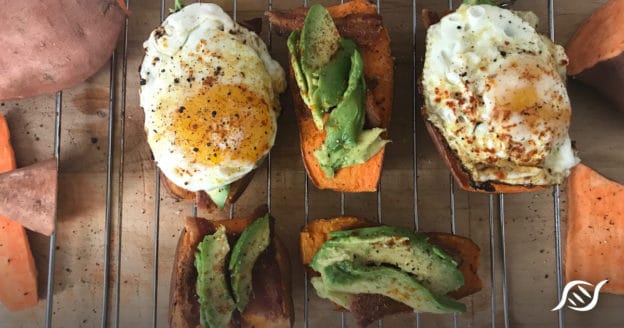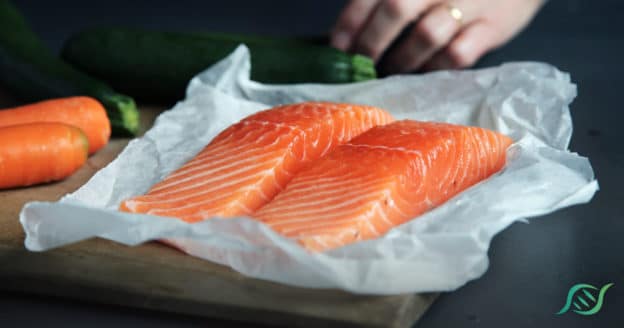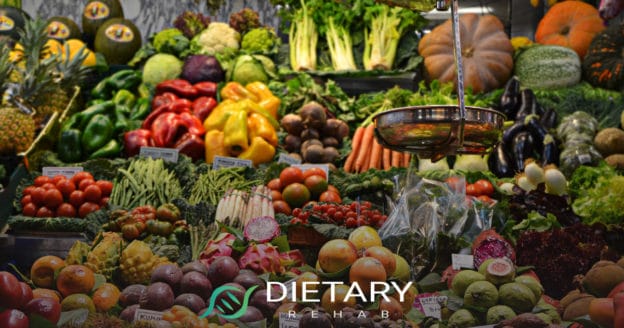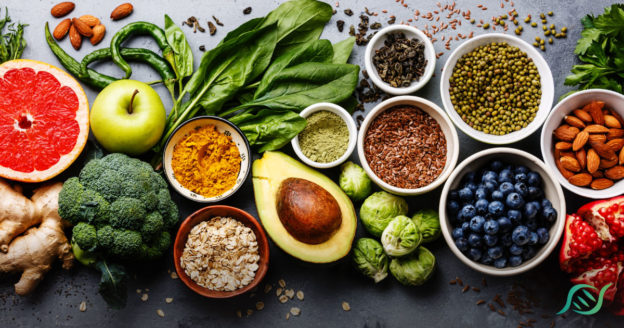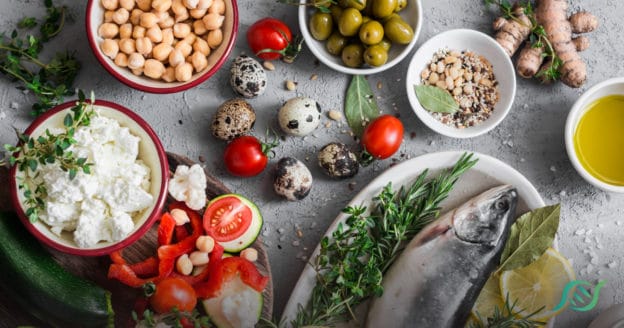Good-for-You Bacteria
Bacteria isn’t always something to be avoided. While it’s good to fight bacteria on surfaces and protect yourself from potential sources of infection, some microorganisms are actually good for you.
Inside the body, millions of bacteria create a microbiome that enables digestion, keeps your gut healthy and supports immunity. Recent studies suggest healthy bacteria could be a major factor in developing celiac disease.
Celiac sufferers are often frustrated when a gluten-free diet alone doesn’t control their symptoms. An issue with the balance of their internal bacteria may be at root of the problem.
What Is a Microbiome?
Micro means small and biome means a community of living organisms. Within every human is a collection of between 10 and 100 trillion bacteria, most of which live in the digestive system. From the salivary glands in your mouth through your intestines, microorganisms work to break down food and perform a host of other functions.
Each person’s microbiome is like a genetic footprint, because it impacts the diseases they are predisposed to, their body weight, heredity and more. The same bacteria also exist on surfaces and throughout the environment.
Gut bacteria help:
- Extract nutrients from food
- Process vitamin K
- Digest cellulose
- Support nerve function.
Some researchers say up to 90 percent of diseases relate to the strength or weakness in a person’s microbiome. What you eat, how many hours a night you sleep and the bacteria in your surroundings all influence the health of your microbiome.
Poor gut health creates chronic inflammation in the intestinal walls and can cause:
- Food sensitivity
- Fatigue
- Depression
- A range of other conditions
Microbiome and Diet
What you eat affects your microbiome. In studies that analyzed humans and 59 other types of mammals, what each organism ate drastically affected their internal bacteria.
Diet can hurt or help healthy bacteria, and bacteria affect how the body digests food. When gut bacteria are in balance, people are more likely to maintain a healthy body weight. As a mice with a healthy body weight receive gut bacteria from obese mice, they gain weight quickly without eating additional calories because of how their new microbiota process food.
Foods That Cause Inflammation
When the gut microbiome undergoes changes due to antibiotics, sickness, stress, lifestyle factors or poor diet, tissue becomes damaged and the intestines become inflamed. Thus, the intestines become permeable and can leak antigens that lead to chronic disorders.
Lowering inflammation helps support gut health. There are several food groups to avoid:
- Refined vegetable oils like corn or canola oil contain high amounts of omega-6 fatty acids, known to cause inflammation.
- Pasteurized dairy products irritate allergies and threaten healthy bacteria.
- Refined carbohydrates like sugar, white bread and white rice are produced by stripping away the beneficial fiber. They cause blood sugar spikes and increased intestinal permeability.
- Packaged granola or boxed cereal might seem like a healthy choice, but it’s often packed with refined sugar.
- Trans and hydrogenated fats used in fried food and packaged snacks also create inflammation.
Farmers feed livestock corn and other inexpensive ingredients to fatten them up quickly, so meat, eggs and poultry from many sources are high in omega-6s.
Celiac Disease Foods to Avoid
For those with gluten intolerance, food can cause intense reactions. Celiac disease foods to avoid include:
- All types of white or graham flour
- Anything that contains the word “wheat,” like wheat bran or wheat germ
- Pasta
- Malt beverages
- Barley
Gut-Healthy Foods
While some foods cause inflammation, others support healthy gut bacteria and reduce intestinal irritation. Celiac disease and a gluten-free diet follow the same rules that are beneficial for everyone.
Carbohydrates should come from fresh fruits and vegetables. Vegetables reduce your risk of heart disease, cancer, arthritis and other illnesses. The best choices are dark, leafy greens and cruciferous vegetables like cauliflower and broccoli; and squash.
If you eat fruit, consume it in its whole, raw form. Juices and fruit that is canned or processed contain added sugar and often have the healthy fiber removed. Instead of soda or energy drinks, choose organic coffee and green tea.
Consume high-quality meat like fish caught in the wild, poultry that is allowed to wander and find its own food, and grass-fed beef. When animals have the chance to find and ingest a range of nutrients, they have healthy microbiomes of their own and provide protein, healthy fat and nutrients without excessive omega-6s.
Choose beneficial fats like those found in nuts and seeds, coconut oil and butter from grass-fed cows. Beans and legumes are extremely healthy, as are grains like quinoa and amaranth.
Other Ways to Support Microbiome Health
What you eat every day either nourishes or destroys a healthy microbiome, but there are other activities that impact gut health. Doctors have been prescribing antibiotics for more than 80 years, and they have saved countless lives.
However, antibiotics don’t just kill harmful bacteria, they destroy entire microbiomes. While individuals recover from the infection for which a doctor prescribed antibiotics, their system tends to develop a higher risk of infection. Avoid taking antibiotics except when they are the only way to fight infection.
People sensed the connection between brain and gut long before science backed it up. When you’re nervous, you feel butterflies in your stomach. When something catastrophic happens, you feel like you’ve received a physical blow to your torso. Seeing something traumatic can make you feel nauseated.
Stress causes biochemical changes, disrupting the digestive system’s internal stability. When people are under prolonged stress, they suffer in the following areas:
- Gastric secretions
- Intestinal motility
- Permeability of mucous membranes
- Intestinal blood flow
Constant stress exposure in mice, for example, encourages some bacteria to grow rapidly, reducing diversity and wiping out the intestinal balance. Even small amounts of chronic stress slow down normal functions.
Exercise for Better Microbiome Helath, Gut Bacteria
Prioritize stress reduction to support microbiome health. Exercise is a natural way to reduce stress, and a new study finds it can encourage healthy bacteria growth. The study followed sedentary men and women, half of whom were obese. Researchers asked all participants to engage in progressively more intense sessions of walking and jogging three times a week.
As a result, exercise changed the gut bacteria in all participants. While individual results varied, almost everyone showed an increase in the microbes that create short-chain fatty acids. (Short-chain fatty acids boost metabolism and fight inflammation.) Lean volunteers showed the greatest benefit. The volunteers’ microbiomes returned to their original levels six weeks after they stopped exercising.
Your Microbiome and Disease
Chronic inflammation causes disease. An autoimmune disease develops when the body’s immune system becomes confused and attacks body systems. Researchers have linked inflammation with a person’s likelihood of developing Alzheimer’s and dementia.
Gut health protects the body from free radicals, which weaken systems to make them more susceptible to many types of cancer. Harmful bacteria break down joints and supportive tissue, causing inflamed joints and arthritis. Nutrition also affects hormonal balances and brain chemistry, so a suffering microbiome can lead to depression.
The health of your body’s microbiome impacts every internal system. To reduce your risk of chronic disease and support a healthy microbiome, avoid antibiotics and foods that cause inflammation. Instead, eat fresh fruits and vegetables, whole grains and protein from quality sources. And finally, cut down on stress and get regular exercise to reduce inflammation and fight disease.


